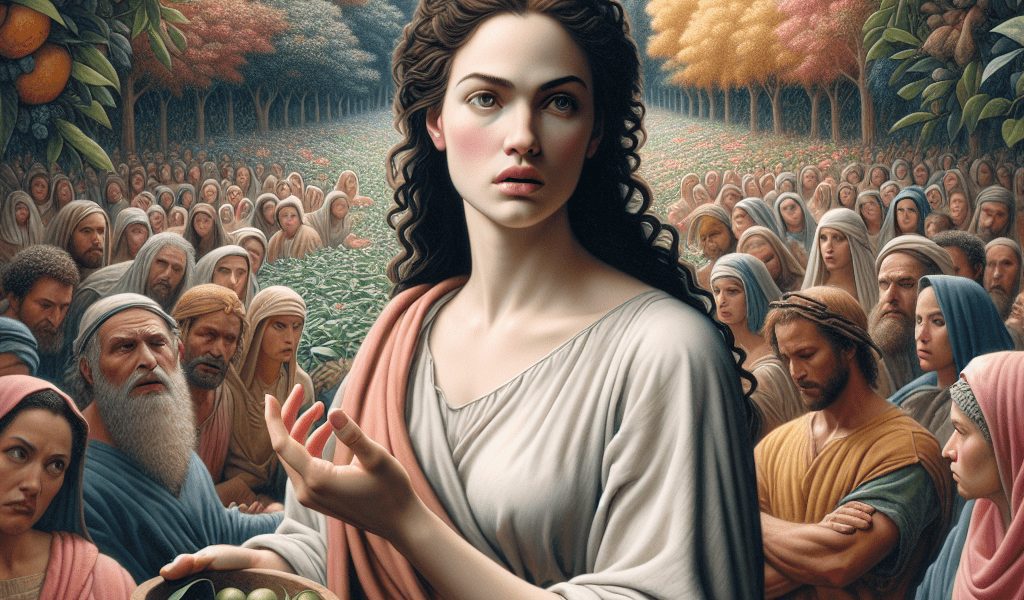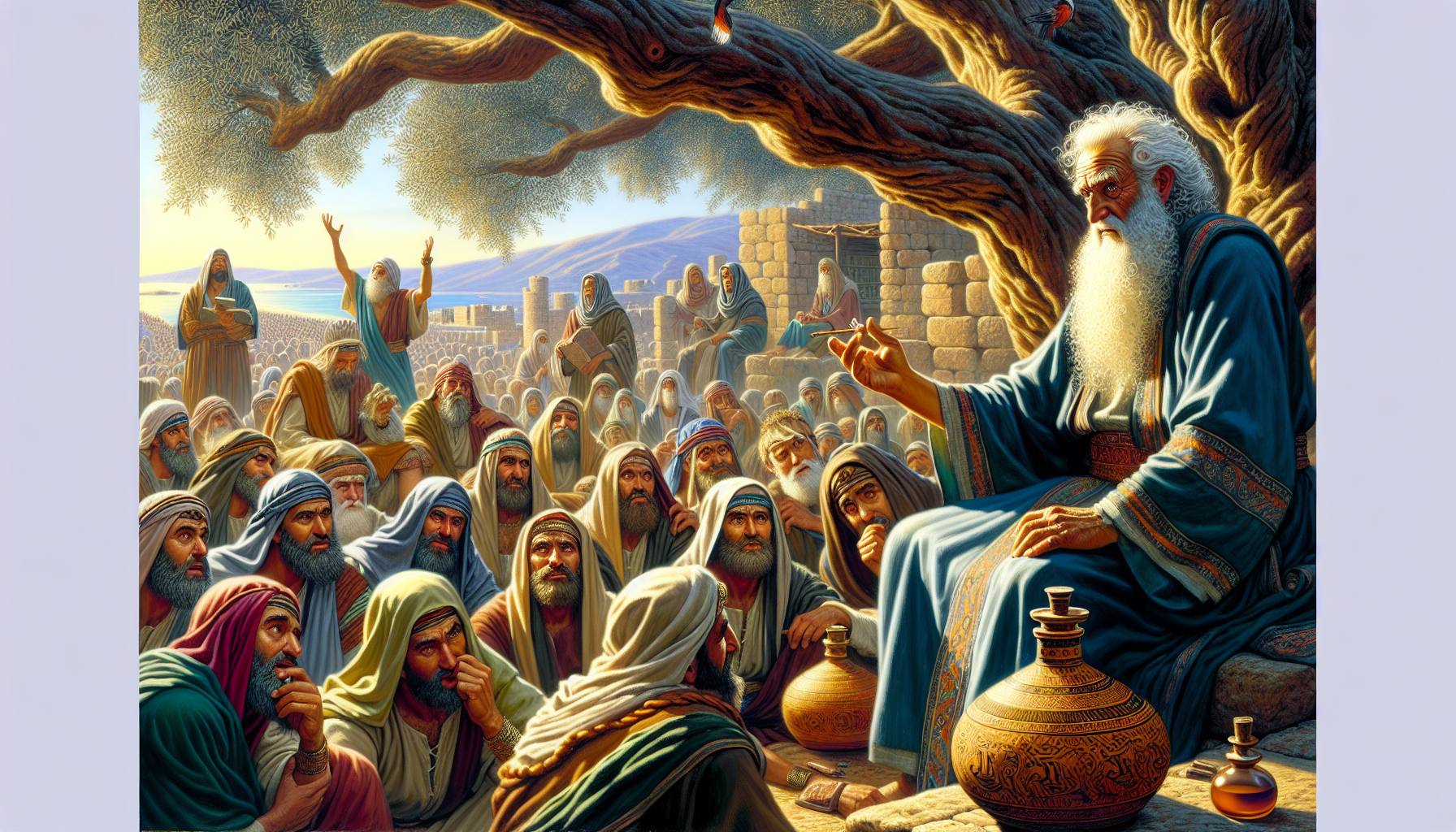Once there was a fairest among women whose beloved had gone missing – lost amidst the vast confines of the world. She, the epitome of beauty and virtue, roamed the land in search of her beloved, her heart heavy with longing. The people around her, moved by her devotion, desired to aid her in her search.
She spoke of her beloved, “He has gone down to his garden, to the beds of spices, walking amongst the lush foliage and gathering lilies in his arms. The garden stands full of his presence, a playground for his flock.”
Somehow, their relationship was an intimate bond, leaving an enduring imprint on her heart. Her assurance was strong, “I am my beloved’s, and my beloved is mine.” Him, feeding his flock among the lilies, painting a picturesque in her heart, an image of peace and tranquility.
The praise of her beloved, she continued, “Thou art fair, O my love, as Tirzah, as splendid as Jerusalem, and terrible as an army with banners.” The beauty of his beloved was beyond comparison, inducing a sense of awe, akin to a formidable army rising with banners unfurled.
Her admiration brought her to an uncontrollable urge of love, “Turn away thine eyes from me, for they have overcome me.” His countenance and all his appearances were likened to nature’s beauty and strength. The state of her beloved captivated her senses, striking as the sight of a wild herd descending the rugged hillsides of Gilead.
In all of these, her beloved was distinct. Though she found herself amidst multiple queens, scores of concubines, and countess virgins, none could parallel her love. Her beloved, her dove, stood high, untouched by the defilements of the world, chosen above many, blessed and praised by all.
She roamed where her beloved once did, in the gardens, looking at the green plants, the budding vine, the flowered pomegranates, cherishing the image of her love. In her quest, she discovered herself amongst the chariots of her princely people, unaware of how she had been driven into their midst.
Yet, during her journey, she found herself longing not for answers but her beloved, yearning for the Shulammite to stage his return, pleading him, “Return, return, O Shulammite; return, return, that we may look upon thee.” Why does the world wish to gawk upon the Shulammite, capturing her attention like the mesmerizing dance of Mahanaim?
In the end, her quest remains one of longing and belonging – a search not only for her beloved but for the feeling of connection with him, reminding one of the relentless pursuit of the One we seek—an overarching biblical theme of longing for and finding God.




